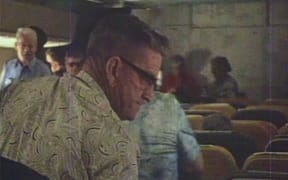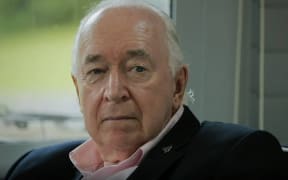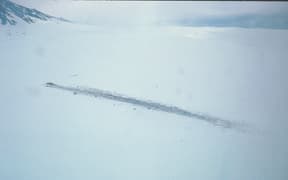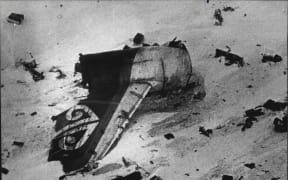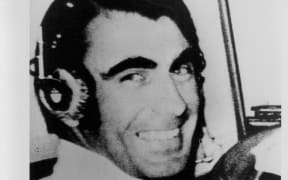This story is part of White Silence, a six-part podcast series from Stuff and RNZ to mark the 40th anniversary of the Erebus disaster. You can listen to White Silence on RNZ, Stuff, or via Apple Podcasts, Spotify, Stitcher, or any other app using the RSS feed.
It's 43 years old and still turning heads: Christine Nicholson's classic car.
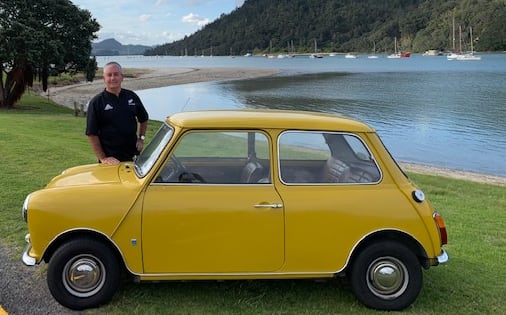
David Nicholson is now the keeper of his sister Christine's car. Photo: Supplied
"Brand new bright yellow mini, you know, like in Goodbye Pork Pie. That's how her brother David Nicholson puts it.
He is now the keeper of the car, bought in 1976 - three years before Christine was killed in the Erebus crash, 40 years ago this month.
"It was something she was proud to have purchased, an iconic little thing so my parents just kept it in memory of her," Mr Nicholson said.
"My father would shine it every day and now I have it so, in 40 years, it's done 72,000 km. So it's almost brand new."
Christine's room, likewise, was kept just as she left it, only packed up when David's mother died years later.
Both the car and the room acted as something of a time capsule, because through all the debates over Erebus, the conflicting inquiries and constant public interest in the tragedy it was hard for the family to find any kind of closure.
"The public things that happened around the accident and the things that didn't happen - meant that my parents' grief went on for many, many years," Mr Nicholson said.
The crash was a devastating conclusion to what had been an exciting project for his sister who taught Standard Four at Woolston Primary School in Christchurch.
"She was very interested in Antarctica because she was developing a learning module with her class… and so… she attended university lectures and did a lot of research into environmental issues."
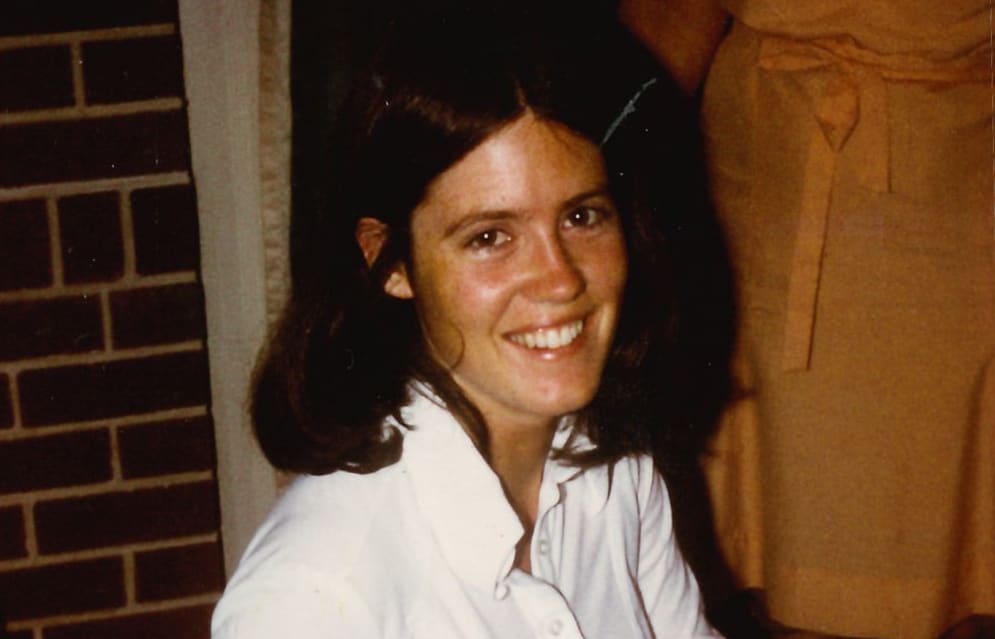
Photo: Supplied
And then a 'friend of a friend' came over from the United States to take one of Air New Zealand's sight-seeing flights to Antarctica and Christine decided to join her.
"Christine thought 'This is a really great idea for the end of this module. I'll take the day off work… and I'll go and take pictures and this is a good way that I can contribute first hand to the class on what I'd seen.'"
It was no small thing to embark on the trip. It cost $379, a lot of money in 1979 and about a bit over a quarter of Christine's annual salary.
But David Nicholson says, while the investment for his sister was 'significant', it was also 'the chance of a lifetime'.
As the day of Christine's big trip approached anticipation grew in the Nicholson household, although there were some concerns too.
"Going to such a remote place, people have anxieties." Mr Nicholson said.
He had a memory of her asking him if it would all be alright.
"I always remember saying, 'This is crazy. It's been done… before. Nothing can go wrong.'"
"So you carry that forward, you know, it's not a very pleasant thing to recall but that's what happened."
His mother later revealed that Christine had had 'a recurring dream that she woke up in snow in her seat," Mr Nicholson said.
"So that's kind of spooky."
Still, the family had faith in the national airline.
And then there were the people like the Antarctic commentators who'd made these trips before:
"Edmund Hillary and Peter Mulgrew: they were national heroes so it had been a pretty successful thing.
"And of course an incredible experience. Not many people got to go there."
The day of the trip Christine left from Auckland and the rest of the family headed to Christchurch Airport at about 6pm, eagerly awaiting her stories of the ice.
"There were some delays and I think I recall us being moved to a lounge and encouraged to look out the window for the aircraft coming on the horizon," David Nicholson said.
"And then some people started to talk about, maybe there's something wrong."
But nothing was confirmed by the airline and 'a pensive air' spread through the lounge.
"Nobody knowing what to do really. Is there a problem or isn't there a problem ? Nobody could confirm it but they said the odd word that there was."
While exact times are hard to recall, David Nicholson believes it was about 8.30pm or 9pm when the airline revealed more detail.
"They came and said 'There must be something wrong because the plane would have run out of fuel by now and therefore it won't be coming back."
The Nicholsons were told to go home, where David joined his parents on their bed.
"And we lay there listening to the radio and, I don't know what time, but I imagine it was about three in the morning, her name was read out as being one of the dead."
The family was devastated.
"It plays out all the 'what-if scenarios'. What if I'd said 'You had a cold and you shouldn't have gone?'"
They remained on the bed all night trying to rationalise what had happened.
"Airports are very happy places… You're seeing people off, they're going to have a good time and your expectation is that they will return.
"And when they don't, I think my parents were left in limbo really because there is no finality."
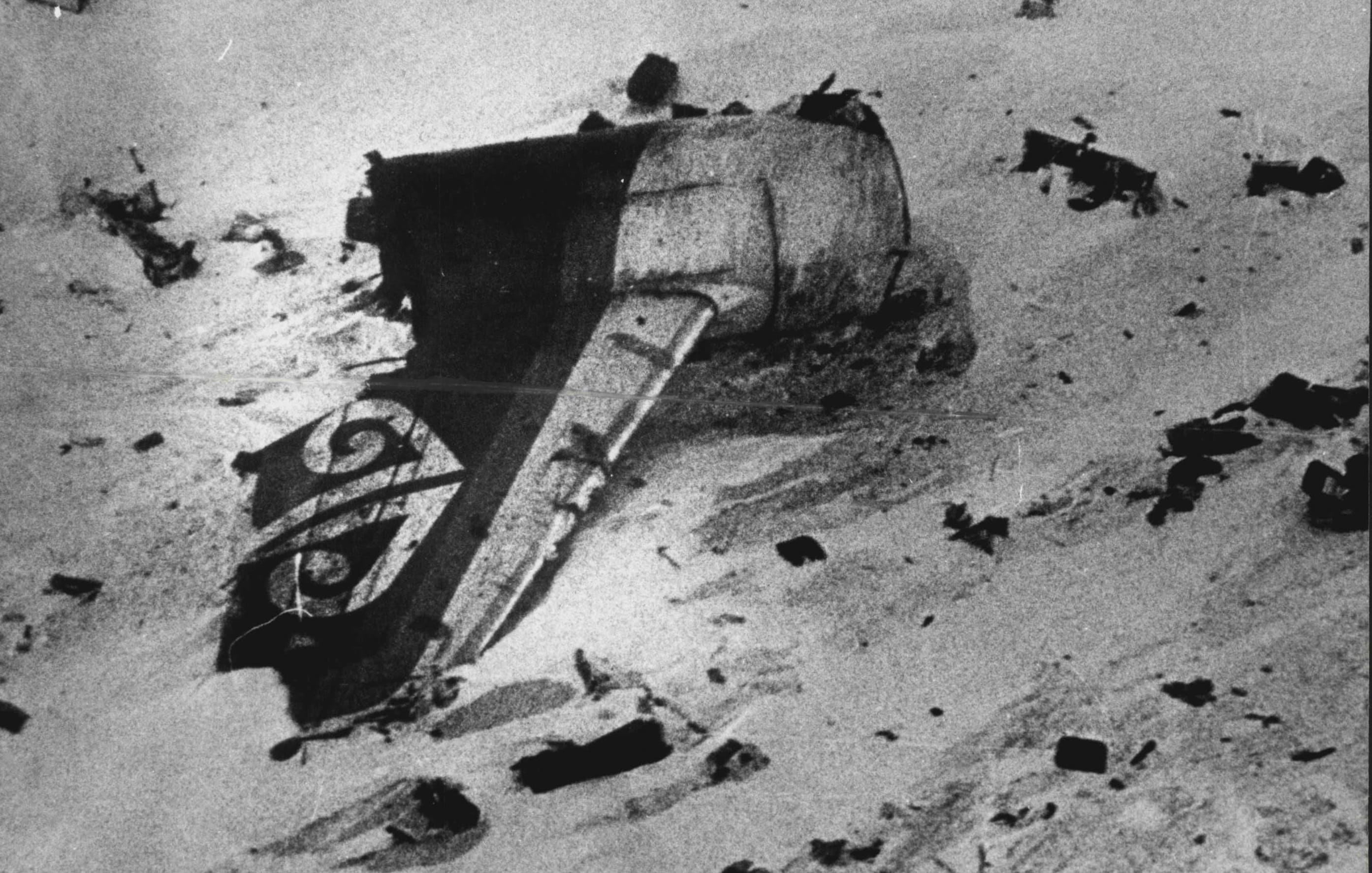
Photo: Colin Monteith / Antarctica New Zealand Pictorial Collection
Mr Nicholson's parents were strong Christian believers and turned to their faith for strength.
But they also wanted information. The couple continued to follow each new Erebus development and visited Justice Peter Mahon who had led the Royal Commission of Inquiry into the accident.
The Nicholson's knew the judge through David's school and their church.
"So my parents were very delighted when Justice Mahon was appointed to do a Royal Commission."
In his final report the judge rejected an initial accident investigation report that blamed the pilots.
Instead he found that the crash was caused by mistakes from Air New Zealand and controversially accused the airline of lying to try to cover it up.
When his famous phrase, 'an orchestrated litany of lies', was thrown out by the Court of Appeal, the Nicholsons believed he had been 'pilloried'.
"They regarded him very highly as person of integrity… but also I would say they felt he was heroic in making his stand, ostensibly against the system, and trying to find the root cause, to find some reason for what had happened."
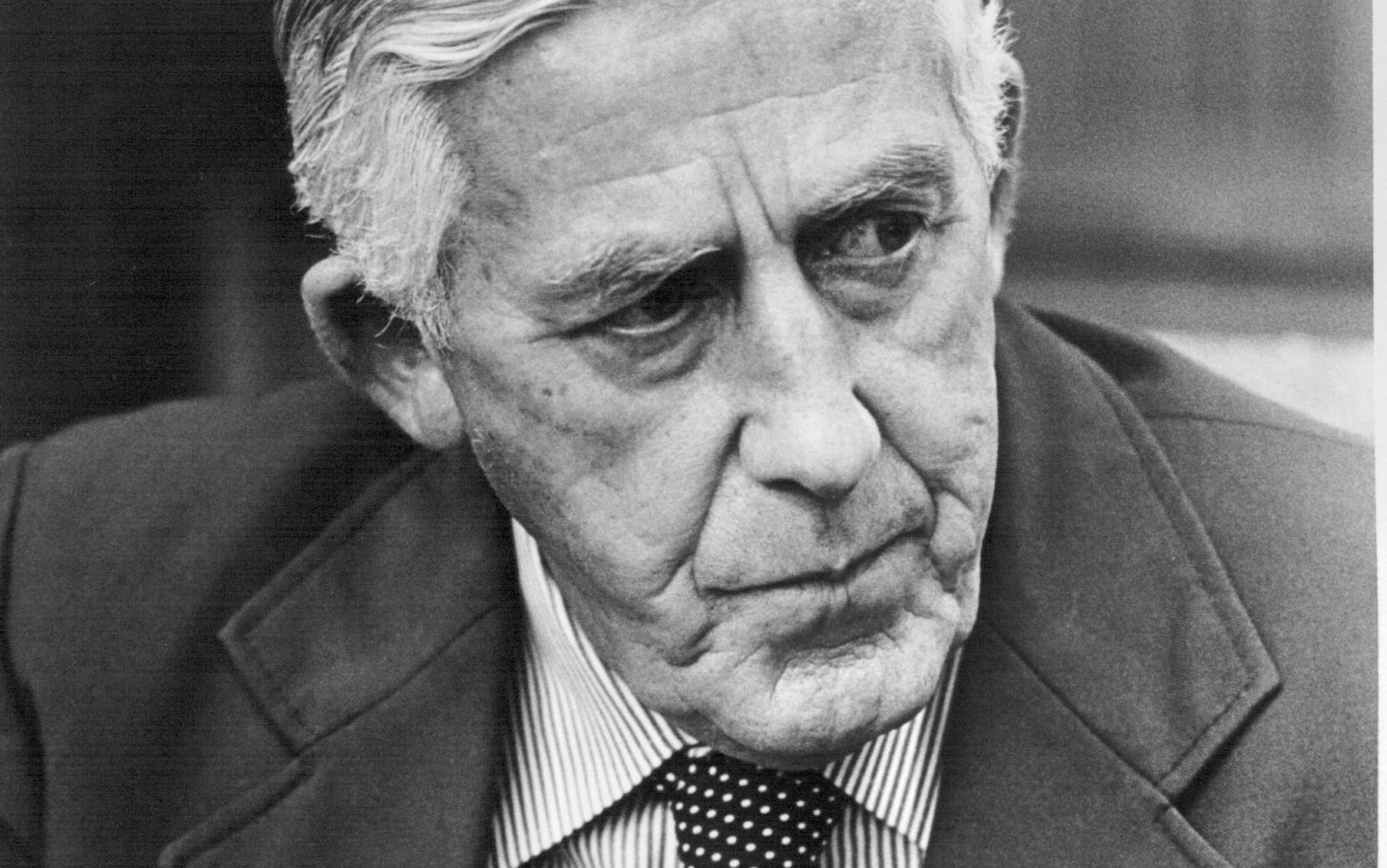
Photo: Fairfax Media NZ
Looking back, David Nicholson's own feeling is that Air New Zealand was too slow to acknowledge that something had happened and that the company had contributed to the accident in some way.
Air New Zealand's Chief Executive, Rob Fyfe apologised to families in 2009 admitting the company had made mistakes.
Mr Nicholson believed this was 'a long time to wait for the airline to acknowledge its, for want of a better word, culpability'.
"I guess, though, history says that people done injustices wait a long time for those sort of apologies. So 1979 to 2009, that's a long time."
One day David Nicholson would like to visit Antarctica as he believes it would offer some finality and some sense of a resting place.
Christine was returned to her family and is buried in Christchurch but Mr Nicholson said her 'first burial was as a result of the accident.'
"I've heard so many wonderful stories about how nice it can be in that place.
"It would be nice to know that it can be a place that is beautiful and pleasant as well as a place of great sadness."
A cross was erected on Mt Erebus, as were other smaller memorials around New Zealand, but Mr Nicholson welcomed recent government moves to establish a new memorial to all 257 victims in Auckland's Dove-Myer Robinson Park (also known as the Parnell Rose Gardens).
"I'm certainly pleased to see there'll be something so the memory of my sister will endure."
"It has been a very, very long time for this to be acknowledged in some significant way, significant in relation to the size of this tragedy in New Zealand," he said.
However he acknowledged that the 1970s were different times.
"If you look at social issues in New Zealand, many were hidden for years and then we came into the era when they were exposed."
Over 40 years a lot could happen in the way of social change, including how companies or even cars operated.
"I guess the analogy is when you get into my sister's car and drive it you realise how much technology has changed because of the road noise and the roughness and the sound and the way you physically propel the vehicle.
"That's a different era, a long time ago."
- You can listen to White Silence on RNZ, Stuff, or via Apple Podcasts, Spotify, Stitcher, or any other app using the RSS feed.
